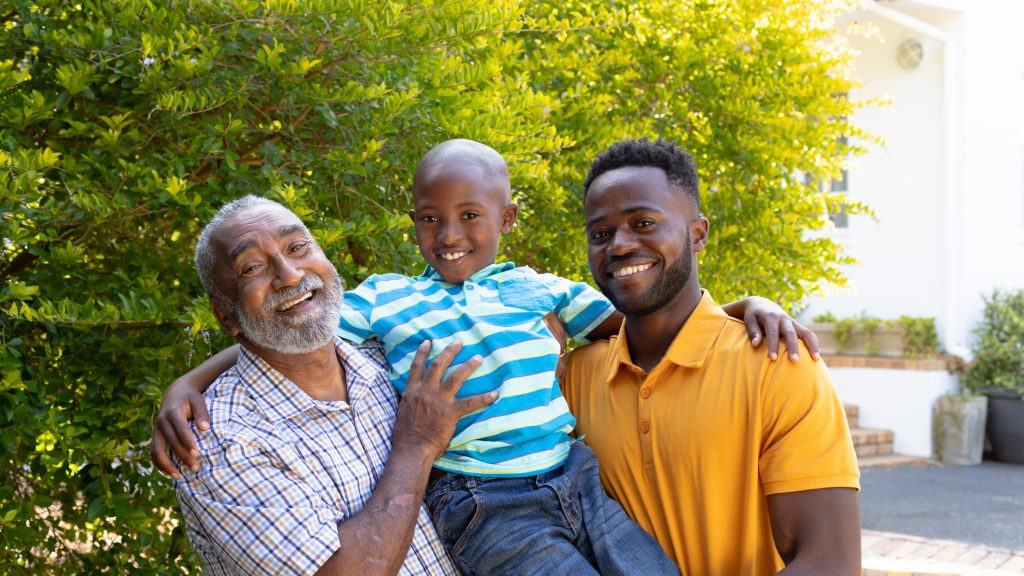Talking to Kids About Dementia

Talking to Kids About Dementia
Dementia can be a challenging topic for anyone to navigate, and it can be particularly difficult for children. They may notice changes in their beloved grandparents, aunts, uncles, or even parents, and struggle to understand what’s happening. As a family caregiver, you play a crucial role in helping them process these changes and maintain a healthy relationship with their loved one. Here’s how to answer their questions about dementia in an age-appropriate and comforting way.
Age-Appropriate Explanations
Children are naturally curious, and they won’t hesitate to ask questions. The key is to be honest and answer in a way that’s easy for them to understand. Tailor your explanation to their age:
- Younger Children (Preschool – Early Elementary): Keep it simple. You can say something like, “Grandma’s brain isn’t working quite as well as it used to. Sometimes she might forget things, but that doesn’t mean she doesn’t love you.”
- Older Children (Late Elementary – Teenagers): You can go into more detail. Explain that dementia is an illness that affects the brain, making it harder to remember things, think clearly, or communicate effectively.
Focus on Feelings, Not Fear
It’s normal for children to feel scared, confused, or even angry when they see changes in a loved one. Validate their feelings and let them know it’s okay to feel sad or frustrated. Here are some examples:
- “It’s okay to feel sad that Grandpa forgets things sometimes. I miss the way things used to be too.”
- “You might feel frustrated if Grandma gets confused, but remember, it’s not her fault.”
Emphasize the Unchanging Love
Dementia may affect memory, but the love between a child and their loved one remains strong. Reassure them that even if their loved one forgets things or acts differently, their love for them hasn’t changed.
- “Even though Grandma might not always remember your name, she still loves you very much.”
- “Sometimes it’s hard to communicate with Grandpa, but we can still show him we love him with hugs and kisses.”
Prepare Them for Changes
Dementia is a progressive disease, so it’s important to prepare children for potential changes. Explain that their loved one might need more help with daily tasks or become easily confused.
- “Sometimes Grandpa might get lost or forget where he is. If that happens, we’ll help him find his way back.”
- “Grandma might need a little help remembering things like taking her medication. We can show her how to do it.”
Activities and Engagement
Children often learn best through hands-on experiences. Here are some ways to keep them engaged with their loved one:
- Simple Activities: Do puzzles, sing songs, or look at old photo albums together.
- Creative Expression: Encourage them to draw pictures or write letters for their loved one.
- Physical Activities: Go for walks, play games, or simply cuddle.
- Children’s Books: Consider reading books that address dementia in a child-friendly way.
- Grandpa’s Magical Mind: A Child’s Perspective on Dementia by Bre’anna Wilson
- Forget Me Not by Nancy Van Laan (Author), Stephanie Graegin (Illustrator)
- Harry Helps Grandpa Remember by Karen Tyrrell (Author), Aaron Pocock (Illustrator)
Remember, You’re Not Alone
Talking to children about dementia can be emotionally draining. Here are some resources that can help:
By having open and honest conversations, you can help children navigate the complexities of dementia.
Remember, their loved one may not remember things the same way, but the bond they share can still be strong and meaningful. With your guidance and support, children can learn to empathize, connect, and continue to cherish their relationship with a loved one living with dementia.
Bayshore Home Health offers a wide range of home care services to help Canadians live independently for as long as possible. Contact us at 1-877-289-3997 for details.
